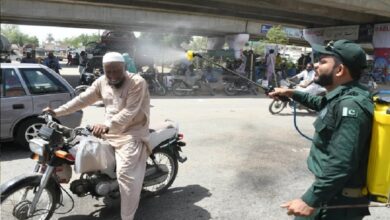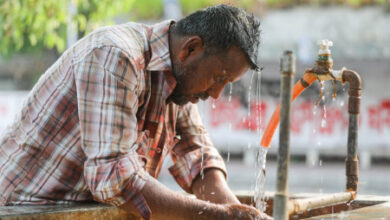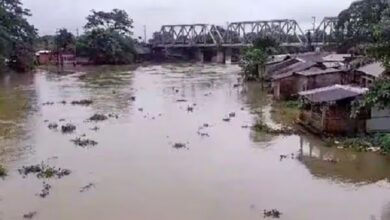Climate change fight could be a boon for Southeast Asia if it gets the right support
Southeast Asia is one of the most vulnerable regions to climate change, but it also arguably occupies a unique position in the global fight against it
BY Harald Eltvedt

This month, the World Meteorological Organization (WMO) announced that for the first time in human history, we are more likely than not to breach 1.5 degrees Celsius in global warming within the next five years.
As weather patterns combine with the effects of human-induced climate change, global temperatures will enter “uncharted territory”, WMO secretary general Petteri Taalas said. Such effects will be especially pronounced in Southeast Asia, where the ever-growing threat of climate change is more intense than ever.
The region is one of the most vulnerable to climate change, but it also arguably occupies a unique position in the global fight against it – one that is primed to effect actual tangible progress, if it paves the right way ahead. For one, it has the potential to provide up to US$1 trillion in annual economic opportunities from the green economy by 2030.
The region has made significant progress in recent years. Since 2020, the Asia-Pacific region has recorded US$15 billion in cumulative investments, with most of it going towards renewables and the built environment. Eight out of the 10 Southeast Asian countries have committed to net-zero targets.

More than 4.5 million people in Bangladesh are affected as of 28 July 2020 after severe floods.
Simultaneously, gaps remain in the region’s emission reduction plans and pathways to decarbonisation are unclear. In Southeast Asia, most of the total energy supply continues to be derived from non-renewable sources, and its energy demand is forecast to rise by nearly 80 per cent by 2050 from 2020 levels according to the International Energy Agency.
There is an urgent need for green financing to close a major carbon emission gap of up to 3.2 gigatonnes by 2030. It’s clear that the financial sector plays a critical role in supporting countries on their journey towards greater resilience and sustainability.
While Southeast Asian economies face immense pressure to increase growth, the region has the potential to integrate green growth into its business goals. It has the opportunity to scale new, emerging and innovative technologies within its start-up ecosystem to confront the risks of climate change and climate inaction.

So much of the growth and economic opportunity in Southeast Asia is being driven by start-ups and small and medium-sized enterprises (SMEs) which make up almost 60 per cent of the region’s gross domestic product. Investors are also taking note of the opportunities, with private funding for climate tech projects hitting a new high in 2022 at US$1.11 billion, compared to US$607 million for the previous year.
An area that we should be looking at is decarbonisation, where there are likely to be promising new projects and services that will enable business and governments to better meet their sustainability goals. Specifically, projects that can address scope 3 emissions – a category developed by the Greenhouse Gas Protocol – bear considering. Scope 3 emissions are those that firms are indirectly responsible for throughout their value chain. These are often the most difficult to quantify and measure at a high standard.
Fundamentally, scope 3 emissions require organisations to shift how they view and take accountability for their carbon footprint beyond what is directly created by their operations. National bourses have already begun to mandate environmental, social and governance (ESG) reporting that includes scope 3 disclosures. Hong Kong is the latest to propose new rules for companies listed on its stock exchange.
This is a critical step that encourages climate accountability across major corporations while also encouraging the growth of an entire new industry of infrastructure providers and platforms that will enable businesses to better measure and manage their emissions.
At a later stage, companies can also benefit from being able to manage their emission offsets by purchasing carbon credits that would verifiably align with the amount of carbon they have actually emitted.
Another area to watch is agritech and agriculture more broadly, which account for a large part of regional GDP and is a major employer in Southeast Asia. The industry in the region has been heavily battered by extreme weather which is exacerbated by global warming.

To ensure the region’s agricultural sector remains viable, farmers need access to consistent financing and tools that allow for price transparency, supply chain efficiency and crop quality across the entire food and agriculture value chain.
With 2030 approaching and a growing need for green projects in Asia, sustainable finance will play an essential role in supporting the transition to a green economy. Investments in new growth sectors that allow for greater climate resilience and adaptation will strengthen the region’s competitiveness by creating new technologies, industries and ventures.
However, channelling material investments and capital will not be enough to meet sustainability commitments. Organisations must also be equipped with the right know-how and technologies to adapt and transition towards a green economy. SMEs in particular need the extra resources to streamline their transition into the green economy amid the ongoing climate crisis.
Southeast Asia has made significant inroads into meeting its sustainability commitments, but a great deal more work still needs to be done. In this constantly evolving space, tackling emissions requires expert knowledge and the right measurement tools to drive alignment and standardise existing data disclosure frameworks, even if regulation or industry-wide mandates have yet to catch up.
Greater collaboration across the public and private sectors is needed to create an enabling ecosystem. We need to nurture the next generation of start-ups dedicated to building innovative sustainable technologies that can truly make an impact.
Harald Eltvedt is an operating member of SC Ventures, Standard Chartered Bank’s innovation, fintech investment and ventures arm




